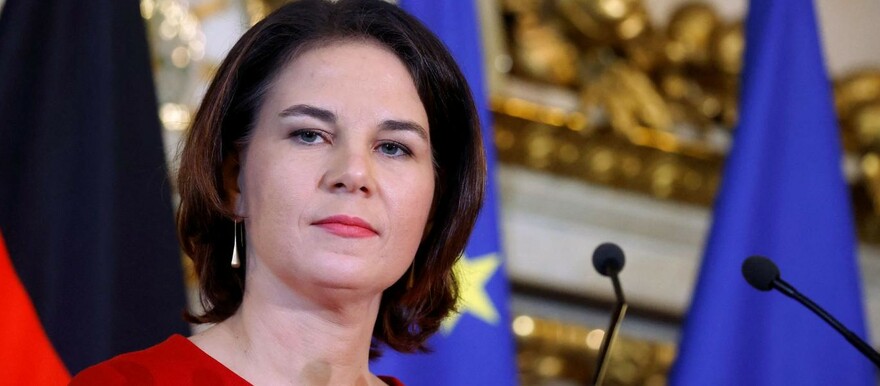German Federal Minister for Foreign Affairs Annalena Baerbock visited South Sudan on 26 January 2024 and during engagements with President Salva Kiir and First Vice President Dr. Riek Machar Teny called on South Sudanese parties to renounce violence in the electoral process.
According to a statement from the Embassy of the Federal Republic of Germany in Juba, Baerbock also underlined that urgent progress by the Transitional Government is needed to ensure that free, fair, and peaceful elections can be held in December 2024.
“She also emphasized the pressing need for progress in the implementation of the Revitalized Peace Agreement, greater transparency in the management of public finances, increased investment in basic services by the Transitional Government, and the facilitation of safe and unhindered humanitarian access in South Sudan,” the statement read.
Baerbock, who visited South Sudan and Kenya as part of her visit to East Africa, welcomed regional efforts to bring about an end to the conflict in Sudan and highlighted Germany’s support for increased pressure on the conflict parties to agree to serious ceasefire negotiations at the highest level and pave the way for a political process with civilian actors, among them women and youth, at its core.
Speaking after opening a new UNHCR women’s friendly space at the Gorom Refugee Settlement close to Juba, Baerbock condemned widespread sexual and gender-based violence experienced by women affected by the conflict in Sudan, underlined Germany’s ongoing support to people in need and called for greater humanitarian engagement by the region.
“Even though other crises in the world are currently dominating the international agenda, particularly the situation in the Middle East, not a day goes by in Sudan, in South Sudan without thousands of people suffering massively. We are witnessing a terrible civil war in Sudan with hundreds of thousands of victims. 1,500 refugees from Sudan come here to South Sudan every day – to refugee camps that were already overcrowded. The refugee camp, where I am right now, was designed for 2,000 people. Now over 12,000 people live here,” she said. “In total, over 500,000 people have fled Sudan in recent months, especially women and children. These hundreds of thousands of women and children cross deserts, and cover distances on foot that one can hardly walk, with next to nothing on their bodies, but many with incredible wounds, physical and mental wounds. Because the war in Sudan is, above all, a war against women.”
Baerbock added: “That is why it is important that we not only keep observing but that we continue to provide humanitarian aid to these people here, especially the women and children.”
The minister said that in addition to medical care and water supply, security is one of the central questions because women and children who have already been through the worst are only partially safe at the camp.
“That is why it is so important that with UNMISS there is a UN mission here on the ground that can provide the best possible protection around the refugee camps. But there is also an increasing need for protection in the refugee camps. That is why support for the local police is crucial,” she stated. “And another big topic is education. Women who have fled here, children, and young people who have fled here, mostly had jobs in Sudan and came from university and school. And then they end up in the refugee camp, where primary schooling is offered, but nothing for teenagers and adults. That is why support in the education sector and medical support is so central for us here.”
According to the German foreign minister, this suffering can only end when the war in Sudan comes to an end.
“That is why I am here in South Sudan to explore with the different actors how to get not only the two generals to the negotiating table, but especially the civilian population, against whom this war is being waged, and especially the women, against whom this war in Sudan is being waged, will be able to come to the negotiating table,” she said. “The same applies to South Sudan here. Here too, the destabilization continues. That is why the order of the day here is that we limit the conflict, the conflicts that are bubbling up here in different regions, we limit these conflicts as best as possible and ensure that there is no further crisis here in South Sudan.”




